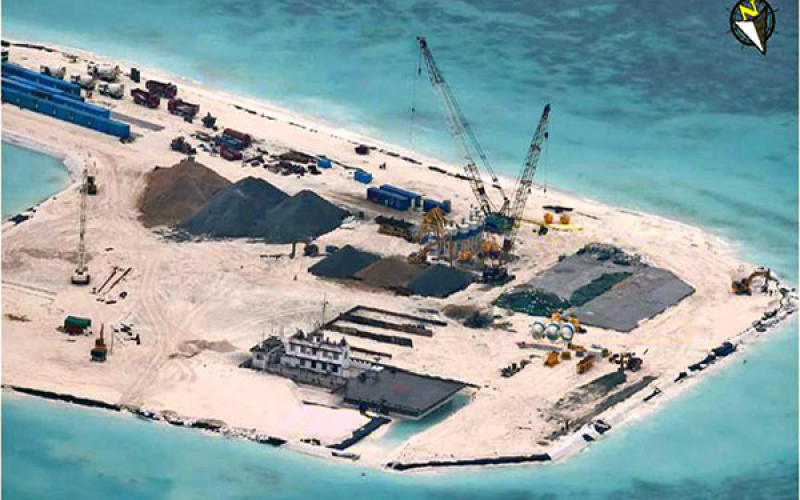China’s land reclamation is not just rooted in erecting a military and political presence in the South China Sea, but in its desire to safeguard the security of its petroleum supply.

China’s land reclamation project among the disputed islands in the South China Sea has drawn extensive international attention. While focus has been on China’s military presence, there seems to be another implication of China’s provocative behaviour. In fact, erecting bases within the region is an extension of China’s oil supply security strategy.
China has long been seeking to secure and diversify risk in its oil supply chain, as energy security is crucial for both national security and economic growth.
With the increasing demand for petroleum, the importance of the South China Sea lies not only in its status as the second most used sea-lane, but also in the estimated 80% of China’s crude oil imports and overseas trade, respectively, that comes through the South China Sea, not to mention the potentially abundant oil reserves beneath the seabed and roughly 10% of the value of global fisheries hauled from the reef-filled waters.
The South China Sea is politically unstable, and subject to competing claims on the islands by the littoral states within the region, including the Philippines, Brunei, Malaysia, Vietnam and Taiwan. Vietnam, for instance, has been occupying islands in the South China Sea in recent years.
In addition, the United States remains the major controller of the sea-lanes within the region, and the US possesses a military base located at the Strait of Malacca, which is the most important checkpoint of the routes to the South China Sea.
Along with several allies of the US in the region, including the Philippines and Vietnam, the hostile environment within the region is perceived by China to justify the construction of artificial islands among its controlled islets and reefs to serve as military bases, and securing its major oil supply routes using its military capabilities.
The recently amended Chinese national security law, which underlined the country’s need to protect its ‘overseas interests’, has consolidated this approach. As one clause of the law states, the “People’s Liberation Army should protect strategic resources and energy reserves, as well as transport channels on sea and land, to safeguard the country’s social and economic development”.
Other than safeguarding the South China Sea route, China has also tried to reduce its oil dependence on the Gulf countries. A recent article in the Financial Times reported Russia has surpassed Saudi Arabia in becoming the largest crude oil exporter to China.
With warming relations between the two countries due to Europe’s sanctions over Ukraine, the pipeline from Tayshet, Russia to Daquing, Northern China, and another one that is under construction from Siberia to Shanghai, are likely to experience fewer obstacles than that from Middle East via the Strait of Malacca to China.
Other diversification strategies for China’s oil supply security, such as the ‘One belt, One Road’ initiative, which aims to consolidate the protection of the pipeline through Central Asia, and the Sino-Burmese pipeline, which will bypass the Strait of Malacca if completed, all signal China’s concern about avoiding the disruption of a stable petroleum supply.
Nonetheless, in the short-term, the South China Sea is likely to be the most crucial route for China’s oil supply, and thus setting up outposts in the region remains a priority of China’s grand energy security plan.
sourche: http://globalriskinsights.com/2015/08/china-seeks-to-secure-oil-supply-in-the-south-china-sea/
Δεν υπάρχουν σχόλια:
Δημοσίευση σχολίου